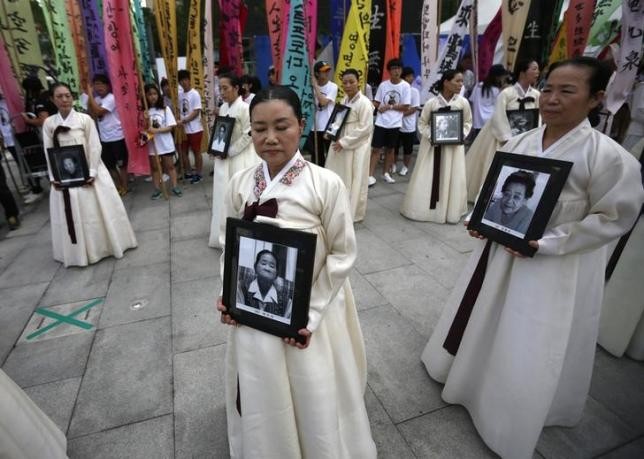The local government in Taiwan plans to reveal its first memorial hall for comfort women in Aug. 2015, Taiwanese leader Ma Ying-jeou said at a meeting on June 30.
The term "comfort women" was coined to refer to the many women, mostly Asian, who were forced into sex slavery by Japanese soldiers during World War II (1939-1945).
The memorial hall will be accessible to the public in Dec. 2017, marking the 70th victory of the war.
"A decades-old grudge could be removed easily, unfortunately, this is not the reality," according to Ma.
There were thousands of Taiwanese women who experienced the sad fate and traumatic experience of being forced into performing sexual acts during the Second World War, Ma added.
The government is active in forming and organizing a wide range of activities in remembering and honoring the victory.
"It was almost 20 years ago that I began helping Taiwanese comfort women fight for rights and justice. But, sadly, we have failed to win legal remedy from Japan," stated Ma.
The ceremony will be opened by the relative of an unsung hero, a female American missionary who devoted herself, mainly during the Nanking Massacre, in protecting 10,000 Chinese war refugees, most of whom were comfort women.
Another memorial hall, in northeast China's Heilongjiang Province, was opened at Harbin Station last year to honor Korean independent activist Ahu Jung-geun for upholding justice and fighting against the Japanese during the war.
Rows of bronze statues were erected in 2014 as a sign of protest for the torture that comfort women endured. Many of the statues represent the very figures they stand for, hoping for the justice they long deserve.
A memorial hall, which also showcases the lives of former Korean comfort women, was opened in Seoul in Aug. 2014.
The hate brought about by war is a horrible thing that the comfort women had to go through, but their history must remain true and unaltered in Asian heart, Ma stated.



























